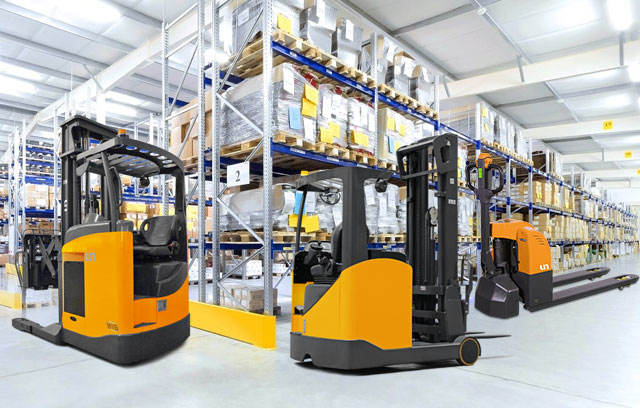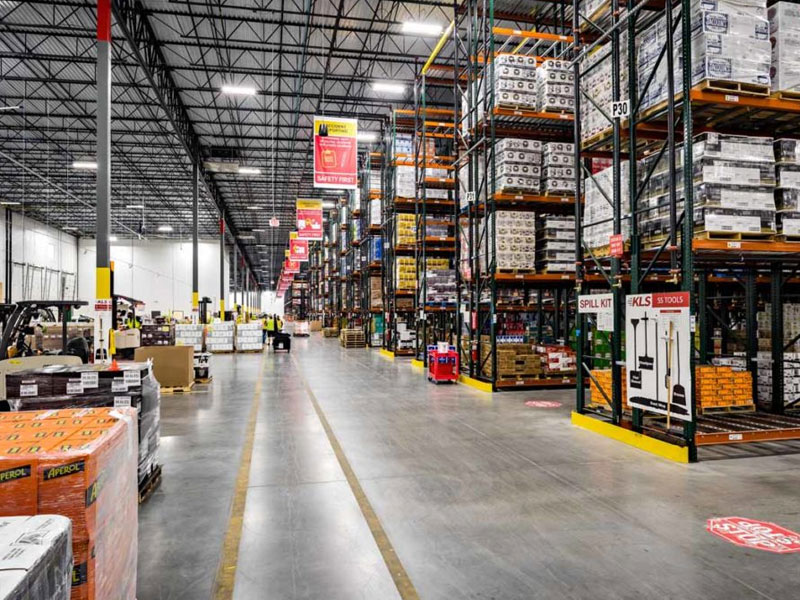Operator Training and Certification
Ensuring that the operator of a diesel forklift has undergone proper training and holds the necessary certification is a primary safety measure. Training programs typically cover operational principles, load handling techniques, safety protocols, and emergency response procedures. Certified operators are better equipped to handle complex situations, recognize potential hazards, and minimize the risk of accidents. Employers should regularly update training to include new safety standards and operational procedures.
Pre-Operational Inspections
Before operating a diesel forklift, a thorough pre-operational inspection is necessary. This includes checking the fuel system for leaks, examining tires for wear or damage, testing brakes and steering mechanisms, inspecting forks for cracks or deformation, and ensuring that all lights and warning signals are functioning correctly. Proper inspections help detect early signs of mechanical problems, reducing the risk of malfunctions during operation.
| Inspection Item | Key Points | Frequency |
|---|---|---|
| Fuel System | Check for leaks | Daily |
| Tires | Inspect for wear or cracks | Daily |
| Brakes & Steering | Test functionality | Daily |
| Forks | Check for cracks or deformation | Daily |
| Lights & Signals | Ensure all are working | Daily |
Load Handling and Stability
Safe load handling is essential to prevent accidents. Operators must ensure that loads are within the forklift's rated capacity and evenly distributed on the forks. Lifting or moving loads that exceed the recommended weight can destabilize the diesel forklift and increase the risk of tipping. Additionally, operators should avoid sudden movements or sharp turns while carrying a load, as these can cause shifting or falling of the cargo.
Environmental and Workplace Safety
The operational environment significantly affects diesel forklift safety. Workplaces should have clear pathways free of obstacles, adequate lighting, and proper ventilation to manage diesel exhaust emissions. Wet or uneven surfaces should be addressed promptly to avoid slipping or skidding. Maintaining safe distances from other workers and equipment is also crucial to prevent collisions.
Personal Protective Equipment (PPE)
Operators and nearby workers should wear appropriate personal protective equipment (PPE), including safety helmets, high-visibility vests, protective footwear, and gloves. Using PPE reduces the likelihood of injury from falling objects, collisions, or unexpected operational issues. Hearing protection may be necessary in noisy warehouse or industrial environments where diesel engines are operating.
Safe Refueling Procedures
Refueling diesel forklifts requires careful attention to avoid fire hazards. Operators should always turn off the engine and ensure no ignition sources are nearby. Fuel should be stored in approved containers, and spills must be cleaned promptly. Refueling in well-ventilated areas is recommended to prevent accumulation of fumes that could lead to explosions or health hazards.
| Refueling Step | Safety Tip |
|---|---|
| Engine Off | Always turn off engine before refueling |
| No Ignition Source | Keep sparks, cigarettes, and flames away |
| Fuel Storage | Use approved containers only |
| Spill Management | Clean immediately to prevent hazards |
| Ventilation | Refuel in open or ventilated areas |
Emergency Procedures
Operators must be familiar with emergency procedures in case of accidents, fire, or mechanical failure. This includes knowing the location of fire extinguishers, emergency stop buttons, and first aid kits. Regular drills and safety briefings can enhance preparedness, ensuring that both operators and nearby personnel respond effectively during unexpected events.
Regular Maintenance and Inspection
Maintaining the diesel forklift according to the manufacturer’s schedule is crucial for safe operation. Regular servicing of the engine, hydraulic system, brakes, and tires helps prevent unexpected failures. Maintenance records should be kept, and any issues identified during inspections should be addressed immediately to ensure the forklift remains safe to operate.
| Maintenance Item | Recommended Frequency | Notes |
|---|---|---|
| Engine Oil & Filter | Every 250 hours | Use manufacturer-approved oil |
| Hydraulic Fluid | Every 500 hours | Check for leaks regularly |
| Brakes | Every 1000 hours | Inspect pads and fluid levels |
| Tires | Monthly | Check for wear, pressure, and damage |
| Battery & Fuel System | Monthly | Clean terminals and check for leaks |
Operational Awareness
Operators should maintain high situational awareness while using a diesel forklift. This includes monitoring load stability, observing pedestrian and vehicle movement, and adhering to speed limits within the facility. Avoiding distractions such as mobile phones and maintaining focus on driving tasks contribute to safer operations.











 中文简体
中文简体 عربى
عربى Español
Español














